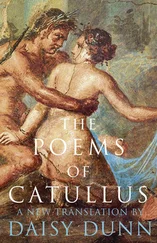Odysseus was a perfect model for Pliny. He showed him that, if the most innocent skies can deliver the greatest snowstorms, then the most unprepossessing men can deliver the greatest speeches. A slight man himself, Pliny took considerable comfort in the idea that even epithet-rich Odysseus cut an unpromising figure of an orator to begin with.
Indeed, Pliny liked to throw what little weight he had into his delivery, as if conscious to avoid Odysseus’ stiffness. He would imagine that he was planting ideas as he spoke like the seeds he sowed each winter: ‘barley, beans and other legumes’. 44Pliny received his initial training under a teacher of rhetoric named Quintilian who was a firm believer in the power of hand gestures. In a detailed treatise he described several which involved bringing the fingers into contact with the thumb in a sort of plucking motion. 45By stretching out his arms, plucking seeds from the air, and scattering them over an invisible trench, Pliny would give a visual demonstration of what little law and landowning held in common. It was rare he could bring his worlds together, but here he tried, combining what he had learned in the fields of his country estate near Perugia with what he had learned in the rhetoric schools of Rome. Nature had taught him to treat his oratory as he did his grain so as to prepare himself for every eventuality. ‘There are no fewer unanticipated and uncertain stratagems for the judges than there are for the weather and soil,’ he explained to Tacitus. 46And so in the courtroom he would reach around, scattering his enquiry as widely as the seeds upon his farms, and reaping whatever happened to take.
In Pliny’s eyes such thoroughness was a virtue because it guaranteed that he would alight upon all the important aspects of a case and bring justice to bear. For others, his conscientious approach suggested a blindness, a lack of instinct, an inability to get to the heart of the matter through intuition alone. Marcus Aquilius Regulus, one of Pliny’s contemporaries at the Court of One Hundred, thought fit to taunt him:
‘You think all angles ought to be pursued during a case, but I see the jugular straight away, and go for it.’
‘But what you think is the jugular might well be the knee or the ankle,’ Pliny wittily retorted. ‘I can’t see the jugular,’ he continued, with less embarrassment than pride, ‘so I try everything, explore everything, “I leave no stone unturned”, as the Greeks say.’ 47
Of all the many things that troubled Pliny about the court in which they both worked, Regulus troubled him most of all. He despised him and his aggressive jugular-grasping approach to the law. In his boyhood Regulus had seen his father go into exile and his property be handed over to his creditors. 48As far as Pliny could discern, Regulus had spent the rest of his life trying to compensate for his early losses, acquiring as much money as possible by the least ethical means possible. He had been little more than a youth when he informed upon some of the most prominent men in Nero’s senate and saw three of them put to death. The senator who proceeded to try to prosecute Regulus in turn went so far as to accuse him of literally having an appetite for human flesh. Senator Montanus, whose party trick was to distinguish ‘at first bite’ whether an oyster came from the Lucrine Lake, Circeo (between Anzio and Gaeta in Italy), or from Richborough in Kent, made the incredible claim that Regulus had so despised the brother of one of the senators he had informed upon that he had paid his assassin and proceeded to take a bite out of his corpse’s head. 49Defended in court by his own brother, Regulus had been dismissed without charge.
A contemporary once called Regulus ‘the most obnoxious of all two-footed creatures’, which seemed about right. 50Pliny told a story in which he characterised him as a ruthless legacy hunter. He described Regulus forcing a lady to open her will and stealing the clothes off her back. He recounted how he encouraged some doctors to prolong a man’s life just long enough for him to change his will before asking them why they persisted in ‘torturing’ the poor man by keeping him alive. 51‘Legacy-hunting’ – known to the Romans as captatio – was a common enough crime for Pliny’s words to have had the ring of truth. Members of the Court of One Hundred had a responsibility to protect the sanctity of wills, not corrupt them. Pliny’s gossip about Regulus showed just how deeply he cared about some of the less sensational work of their court.
Pliny could never understand how Regulus managed to attract to the courtroom the crowds he did. He had ‘weak lungs, garbled speech, a stammer, he is very slow to make connections, has no memory, indeed he has nothing except a mad creativity’. 52He was jittery and pale and so bad at memorising his speeches that he relied upon writing them down. 53Pliny disapproved of reading speeches aloud because he believed that an orator needed his hands and eyes to be free in order engage the crowd. 54
Regulus cut not only a dull figure but a ridiculous one; he insisted on wearing an eye patch – over his right eye if he was speaking for the prosecution and over his left if for the defence. A sign of gross superstition, his patch also had the useful effect of reminding him which side he was speaking for. 55He used to consult soothsayers on the outcome of his cases and examine livers for signs of future prosperity. Pliny once caught him in the process of divining his own fortune. Having discovered a double set of entrails inside a sacrificial animal, Regulus boasted that he would not be worth 60 million sesterces, as he had originally predicted, but twice that. Pliny did not doubt him. 56He was considerably richer than Pliny. Among his many properties Regulus kept gardens with exquisite statues and enormous colonnades on the banks of the Tiber. 57One day he was very nearly killed by a collapsing colonnade on the ‘road to the chill heights of Herculean Tibur, where white Albula is vaporous with sulphurous waters’. fn1
But for all Pliny cared, Regulus might have been crushed and ‘dispersed’ like the columns ‘in a cloud of dust’. 58
THREE
To Be Alive is to Be Awake
If you have a garden in your library, you’ll lack nothing
Cicero, Ad Familiares, 9.4
Pliny the Elder had lived as breathlessly as he died. An exception to his own rule that ‘there is nothing in Nature that does not like the change provided by holidays, after the example of day and night’, he had worked through darkness and daylight. 1
He was not like the beasts of burden who ‘enjoy rolling around when they’re freed from the yoke’, or the dogs who do the same after the chase, or the tree that ‘rejoices to be relieved of its continuous weight, like a man recovering his breath’. Believing that a moment away from his books was a moment wasted, Pliny the Elder had developed an extraordinary ability to study in any situation: not only while he ate and while he sunbathed, but even while he was rubbed down after his bath (he used to pause only for the bath itself). On one occasion when he was taking notes over dinner, a guest deigned to correct the pronunciation of the slave who was reading to them from a book: ‘But you must have understood him?’ Pliny the Elder asked. ‘Then why did you make him repeat the word? We have lost at least ten verses because of your interruption!’ 2Pliny remembered how he used to chastise him for walking everywhere when he might have travelled by sedan chair, as he did, ‘You could avoid losing those hours!’
After his spell of writing inoffensive grammar books during the latter years of Nero’s reign, Pliny the Elder had found a new direction in his studies, completing a history of modern Rome begun by a historian named Aufidius Bassus and finally getting down to work on the Natural History. The change in his routine had come about with the rise of a new dynasty of emperors under Vespasian in AD 69. The scion of an ‘obscure’ family of tax collectors, Vespasian was a senator and exemplary military man and one of the most capable of Nero’s generals. He had already commanded a legion in Germania and conducted a tour of Britain – where ‘he brought under [Roman] control two very powerful tribes and over twenty towns and the Isle of Wight, which is next to Britain’ – when Nero sent him east to quell a Jewish uprising. 3
Читать дальше












